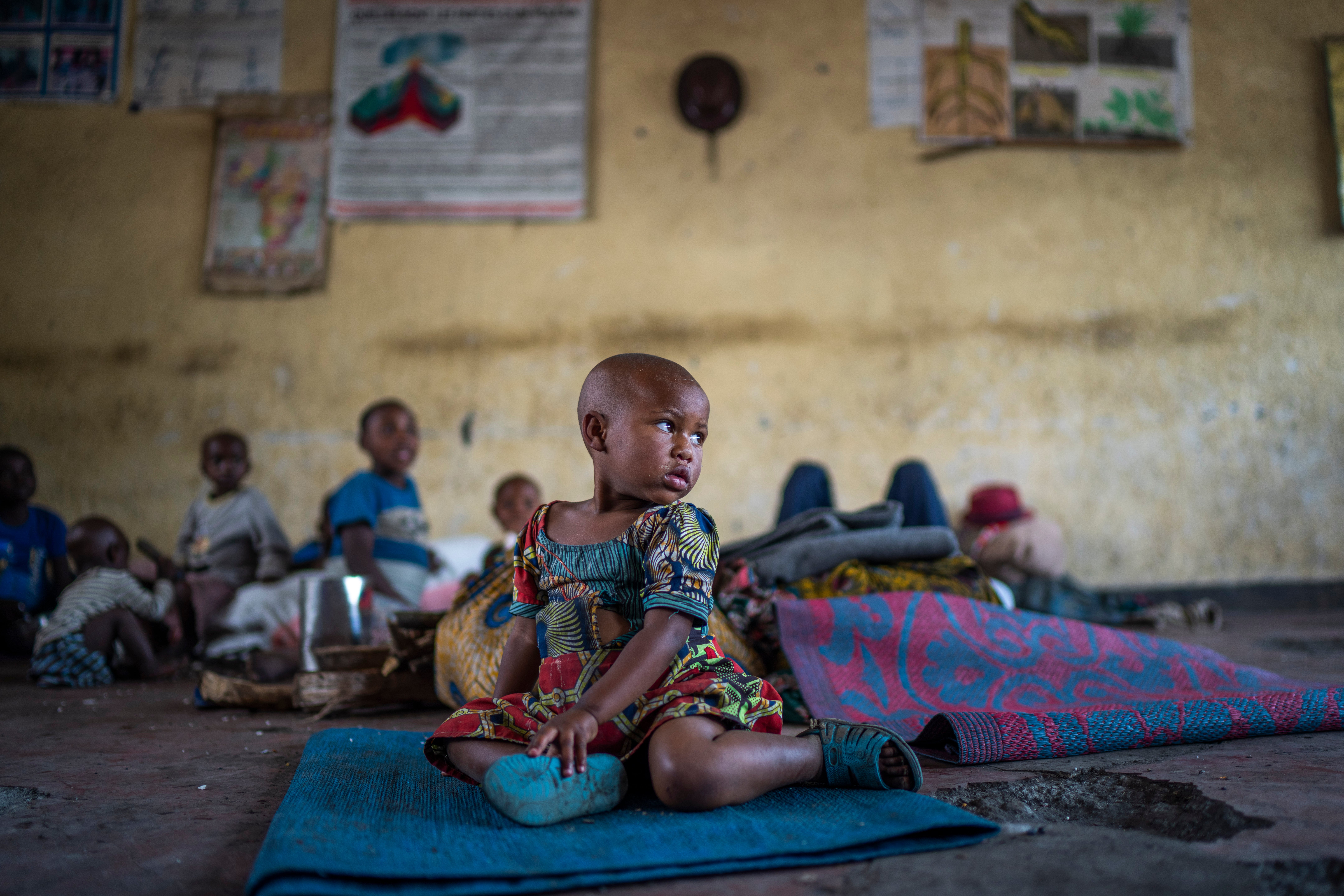131 civilians killed by M23 rebels in eastern Congo, says UN
A new U.N. report says rebels in eastern Congo have killed at least 131 people and inflicted “unspeakable violence” against civilians

Arbitrarily shooting, stabbing, raping and abducting people, rebels in eastern Congo have killed at least 131 people and inflicted “unspeakable violence” against civilians, says a new U.N. report.
The M23 rebel group killed men, women and children in two villages in Congo's Rutshuru territory in North Kivu province last month, according to a preliminary investigation by the United Nations Joint Human Rights Office in Congo and MONUSCO, the U.N. peacekeeping mission in the country.
The investigation, based on interviews with 52 victims and witnesses, details a brutal campaign of killings, rapes, kidnappings and looting in Kishishe and Bambo villages, between November 29 and 30 by the rebels. At least 60 people were abducted, 22 women and girls raped, property looted and houses burned, says the report.
The killings were among the latest in clashes between the rebels and a coalition of armed civilian protection militia, which have been fighting each other in eastern Congo for more than a year, since M23 rebels resurfaced after being dormant for nearly a decade.
The M23 rose to prominence 10 years ago when its fighters seized Goma, the largest city in Congo’s east, which sits along the border with Rwanda. The group derives its name from a March 23 peace deal in 2009, which it accuses the government of not implementing.
After the attacks, rebels prevented survivors from leaving ransacked villages and allegedly buried bodies of victims in what might have been an attempt to destroy evidence, said the U.N. report. Due to security constraints, investigators were unable to access the villages and instead spoke to survivors and witnesses at a U.N. peacekeeping base in a nearby town where people had sought refuge.
The report comes amid a spate of tit-for-tat accusations by both groups accusing the other of atrocities. While a cease-fire was agreed to last month, analysts say the new attacks could lead to further violence.
"Despite M23’s recent statements expressing willingness to withdraw, the group’s attacks against civilians could potentially indicate an escalation of the conflict, and are likely to lead to further violence between M23 and other armed groups, some of whom have also committed violations. Civilians, as always, will pay the price,” said Daniel Levine-Spound a researcher focused on Congo with the Center for Civilians in Conflict.
M23 did not immediately respond to the findings of the U.N.'s investigation but has previously dismissed similar accusations as propaganda. It said that it is committed to abiding by the cease-fire agreed to in Angola in November. Speaking to The Associated Press by phone, Lawrence Kanyuka, the rebel group’s political spokesman asserted that M23 is entitled to defend itself if attacked.
However, the group has gained ground in recent weeks, inching close to Goma and expanding into Masisi, increases in their territory that make it hard to believe the rebels are only acting in self-defense.
“When you look at how much terrain they’ve gained since October it’s hard to believe that argument that they’re just defending themselves," said Eliora Henzler, coordinator for the Kivu Security Tracker. "The problem is that it’s still not clear to us what they want. It’s difficult to understand what they see as an end game.”
In an attempt to help Congo’s government to stabilize the country, on Thursday the Council of the European Union added eight names to a list of people subject to restrictive measures, including a member from M23 as well as four other armed groups in Congo, said a statement by the council. Measures include a ban on entering the EU and asset freezes. Most of the people on the list are alleged to be responsible for serious human rights abuses as well as maintaining the conflict in Congo, said the EU.
The violence is exacerbating a dire humanitarian crisis in eastern Congo. Hundreds of thousands of people have been displaced, living in squalid conditions in damp schools, churches and stadiums. Locals want the Congolese government to do more to stem the violence, but say they won't support negotiations with a group as brutal as M23.
”I would like our government to start fighting and finish the M23 rebels and refuse any negotiations with these terrorists," said Stephanie Mbafumoja a resident in the nearby town of Beni. “Why negotiate with them? It is enough to annihilate them for peace to return to Congo."
___
Mednick reported from Dakar, Senegal